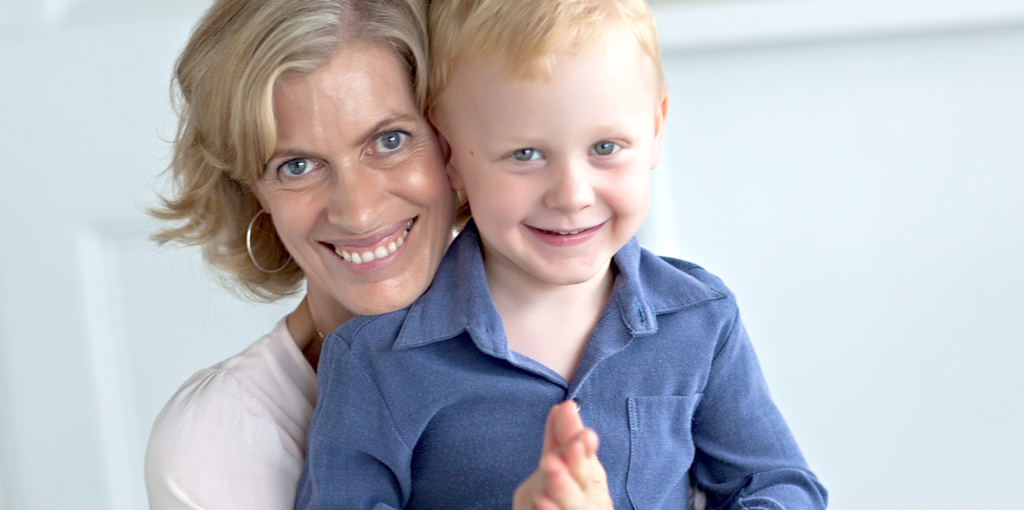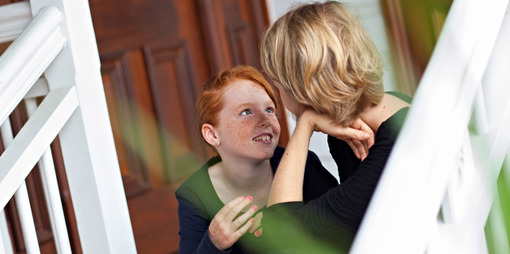Being a woman is more than being a mother

Being a woman is more than being a mother
It never even occurred to me growing up that I might not choose to have children. In fact, this was reinforced on a regular basis by the question from those adults around me – “so how many children are you going to have?” Two was always my answer, a boy and a girl … of course!
As a fifty-something year old woman today with one child (now an adult himself), and on reflection, how crazy that this question is asked of a young girl well before she has any sense of who she is, what she might like to do in life, what her situation might end up being, who she might partner with – if at all – and how they together might feel about having children. So many variables, and yet the assumption remains that girls when they grow up will have children as a matter of course, and what’s more, that they would naturally want to have children.
I am sure this is in many cases true, however in my experience it is part of the setup that sees us arrive at motherhood and think we should feel completed by the experience.
On the flipside of course, to hold motherhood as a point of completion, and for the woman to find herself unable to bear children through circumstance or health, means she can never feel complete.
For me the insidiousness of these germinated seeds planted throughout my childhood was definitely felt in the early years of my son’s life. Falling pregnant was in some ways like a rite of passage – suddenly other women saw and treated me differently; I was less threatening it seemed, no longer the potential competition for attention from men is how it felt. Women would smile as I walked past, their demeanour softening momentarily as they acknowledged the potential new life being carried. Men also treated me differently, a few with the same softened glance, but most with complete disinterest. I was clearly ‘taken’ and hence no longer seen as a woman in my own right, but the partner of another and about to become a mother. I was officially ‘off the market’ was how it felt.
And of course, once my son arrived, this difference in the way I was seen only heightened. The attention of others moved at lightning speed from me as the mother, to the gorgeous baby in pram or arms.
In all this it was effortless to identify myself as the mother of this wondrous being who grabbed the attention of so many, including me, watching eagerly for the milestones that would confirm what an amazing child I had.
In later years that confirmation included how his behaviour reflected my parenting. Again, the identification was there; how good was I as a mother, how was I seen in that role, what did I need from my son in order to confirm that I was ok as his mother? Did I need him to like me, to be the parent he ended up able to say ‘wow, my parents were so cool’, or would he need to go to counselling to ‘deal with his childhood issues’?
All this influenced the way I saw myself as a woman, and I identified with being a mother as an intrinsic part of what it meant to be a woman.
While my son was still quite young I came across the Universal Medicine modalities, and through experiencing them over time, noticed an interesting and significant turn of events.
I began to feel complete within myself, which I also felt as an increasing settlement within me, a stillness that left me content and knowing of who I was. I no longer felt what I could recognise in retrospect was a deeper sense of angst … and with it, a feeling of never being quite enough. From this feeling of angst had always come a search for what would appease it … buying new clothes, keeping very fit, dressing attractively … and in honesty, all this to gain and ensure the attention and approval of men. Having a partner was imperative and although I always did, a daily ritual of eating chocolate seemed necessary by mid-afternoon to appease a rising feeling of discontent as the day progressed. It was a discontent I’d never been able to make sense of … I ‘had it all’ after all, so it made no logical sense to the pictures l’d grown up believing fulfilment in life was all about.
The newfound sense of completeness was profoundly different and separate to my being a mother, to being a practitioner (as I was at that point), or to being or having a partner. It was a sense of myself that was independent of any of these previous outer measures.
It turned on its head everything I had come to identify myself as when it came to being a woman, as a mother on the one hand as well as everything else l had used to identify me too; a good body, long blonde hair, a sporty inclination, and so on.
I got to experience myself as not any of these things, but in the most exquisite quality of being within me. It was undeniable and so deeply quenching of that angst, that to leave it from that point on and consider myself from my previous measures left me with a feeling of emptiness – the same angst but magnified it seemed. Nothing could fill this emptiness anymore, short of restoring the connection again to the quality I now knew was within me.
Whenever I did start to take on something of how I should behave, look, live up to – in particular as a mother – I would find myself without the depth of contentment that I had come to know as part of feeling complete.
To know myself in this way first as a woman – before I was a mother, before I did anything or looked any particular way – was very liberating; I was no longer on what felt like a hamster wheel … forever chasing the unattainable!
I saw that the sense of completeness I strove to attain previously came through the ticking of boxes, attempting to match pictures of what I thought it meant to be a woman. The real incompleteness remained submerged and hence the angst, seemingly fulfilled by having the baby and striving to be the best mother, but in reality, never succeeding.
This true sense of completeness was always there I realised, and in re-establishing my connection to who I was before I was anything by my looks or roles, I found that I became a greater version of the mother I had been to that point – I was now bringing the whole of me to it, without needing it to identify me as a woman in any way.
The flow-on effects of this shift were immense, to say the least. I found myself able to parent with greater clarity – that I could more easily discern my son’s needs, and meet them, free from the constraints of my own or others’ expectations or pictures of how it should look. From the newfound contentment I felt, and particularly as it deepened over time, I found I didn’t need him to be anything more than just himself for me, nor did I need to win him over to like me, or to strive to be the best parent by his or anyone else’s measure. The pressure was off to live up to something and motherhood became immensely enjoyable and easy.
I also didn’t need to make myself attractive for anyone else’s attention but found that I naturally took greater care to look after myself, dressing in a way that was reflective of how I now felt and not for anyone else’s approval.
I grew to feel confident, solid, deeply loving and self-assured as the woman I was getting to know myself to be, and over time found that nothing much could rock that feeling. It came from within and was sustained by the myriad of self-caring and self-loving choices I was learning supported me throughout my day.
From the time my son reached the age of 15 or 16, he no longer needed much by way of mothering. He was capable of making choices and dealing with the consequences for himself, with only occasional input from me. Letting go of this role as a mother I found effortless and welcome, realising I didn’t need anything from it to make me feel more or better about myself as a woman. I felt a freedom to get on with things in my own life, unrestrained and unencumbered by the responsibility of parenting – I was free to express fully the woman I had come to know was me.
Filed under
Acceptance, Appreciation, Connection, Essence, Sacredness, Self-worth



 PRINT PAGE
PRINT PAGE




